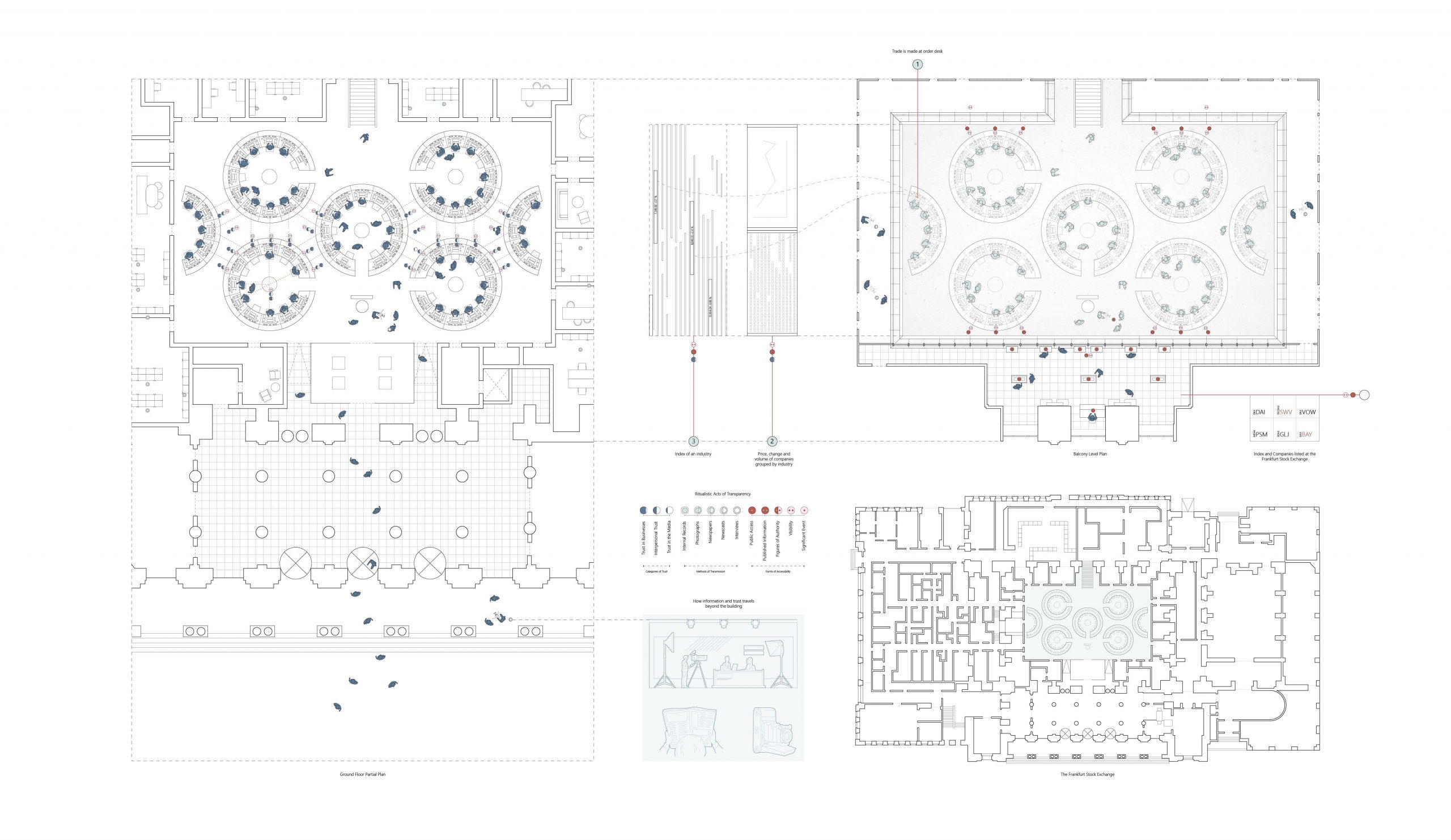
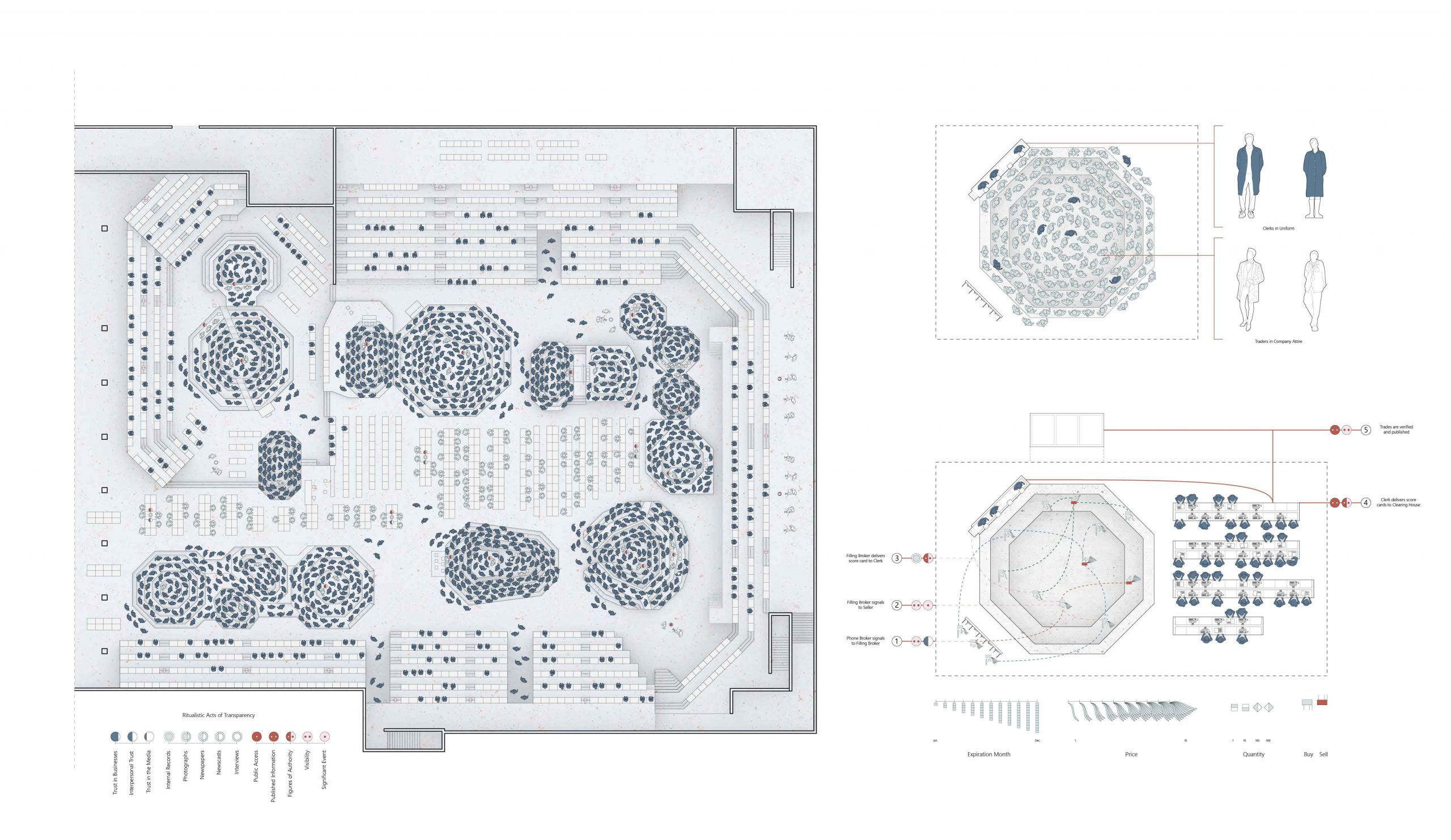
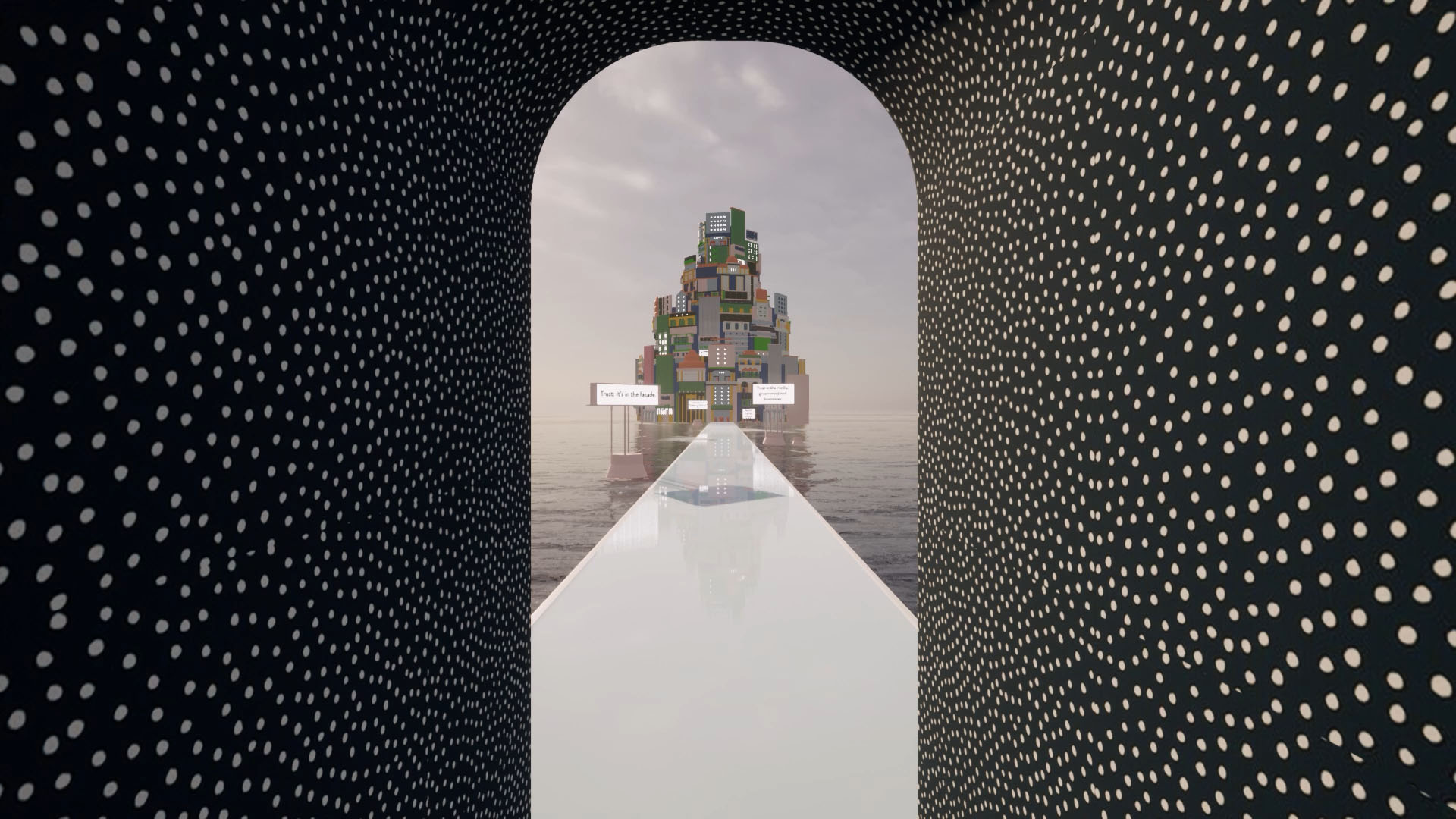
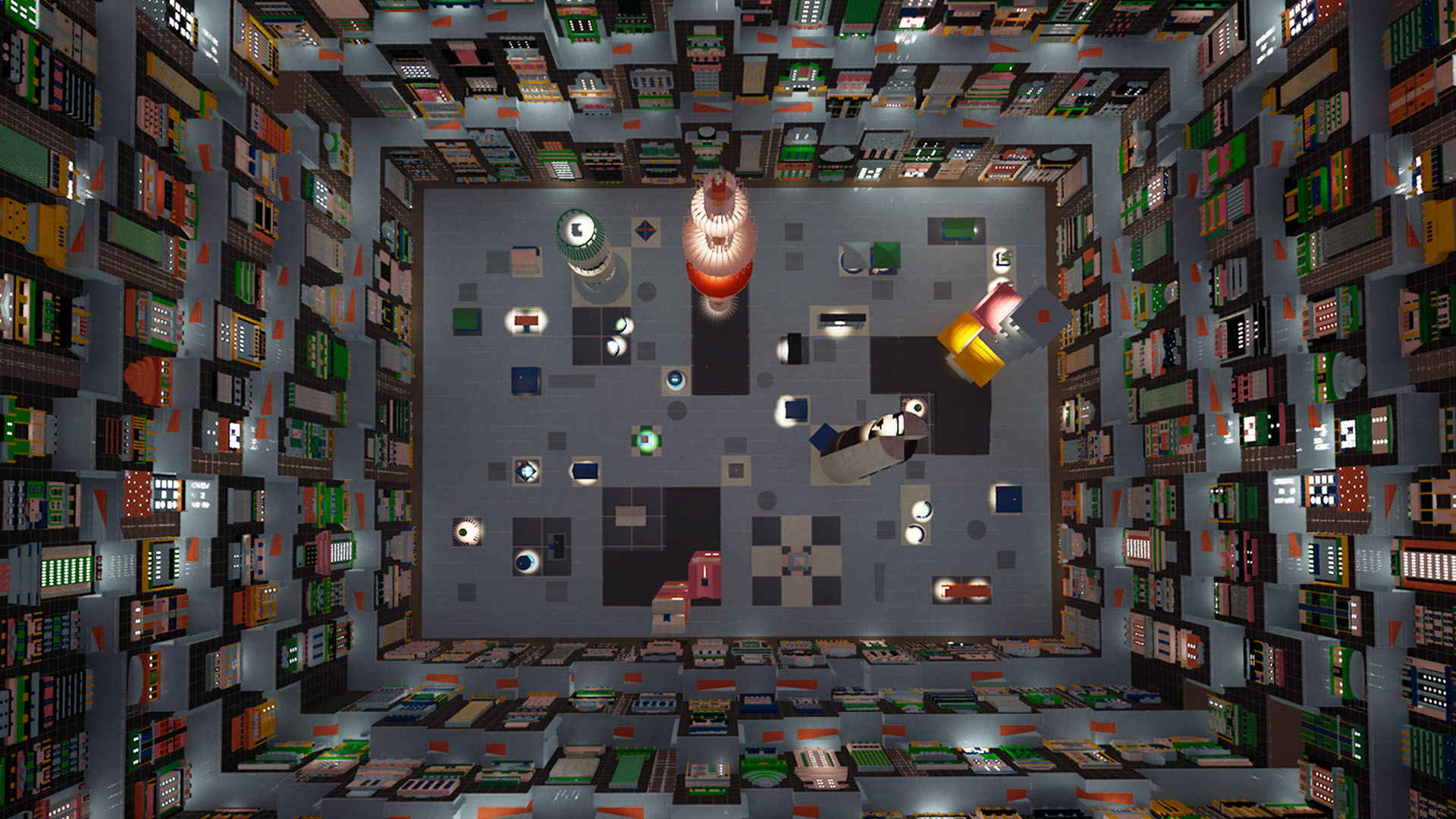
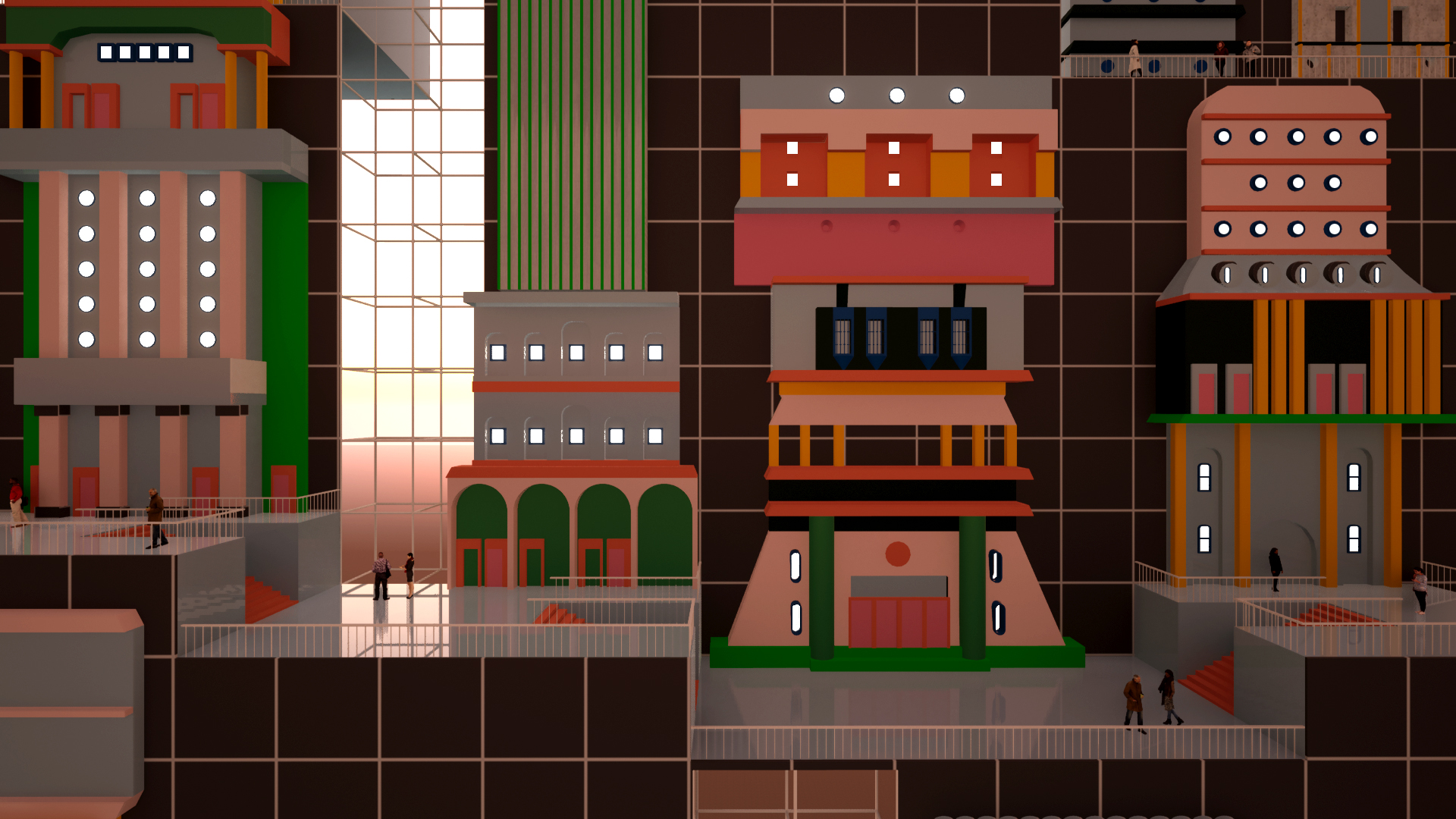
The facades of nations are displayed within an exterior tower and interior stepwell that is the virtual venue for discussion and research to better understand trust. The perception of trust by the general population of each country is annually evaluated and translated into a score along the trust index. These facades function as visual ciphers that translate this numerical data into a spatial and social experience. In contrast to a world’s fair, where a country designs a space that represents the image that they would like to convey to the world, the design of these facades are dictated by scores on the trust index.
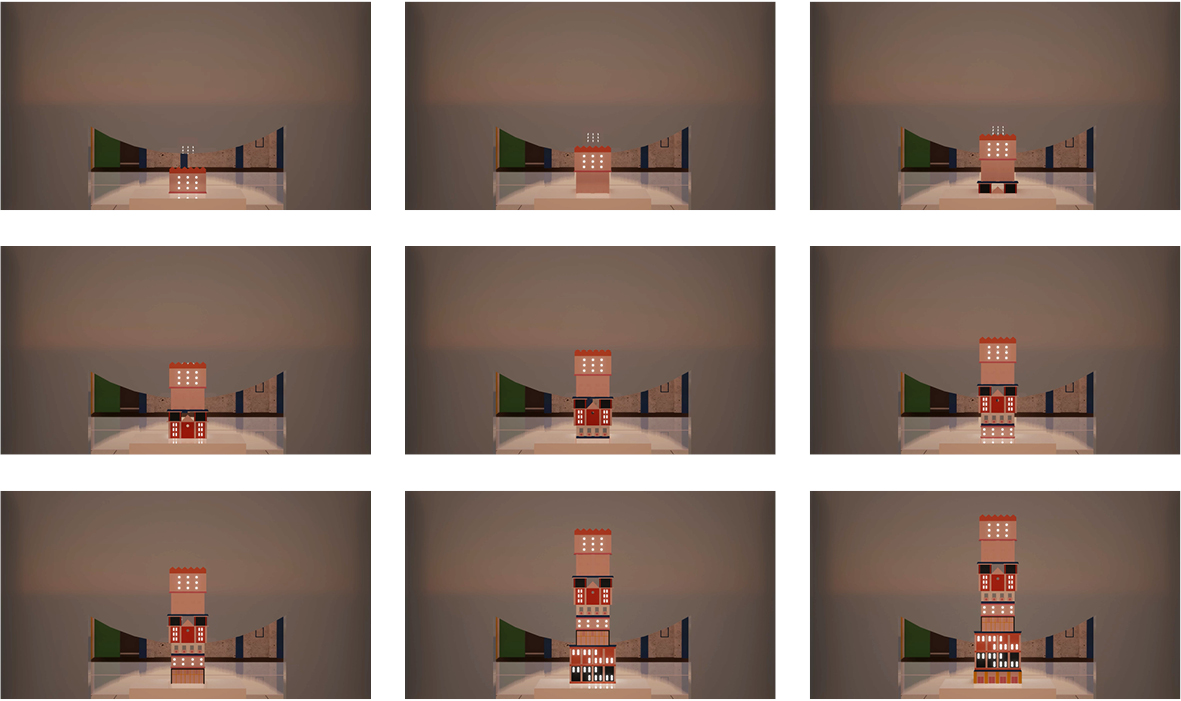


The facades provide a global overview and in many cases a generalization of the state of trust in the world. This data is generated through public opinion polling which aims to develop a transparent snapshot of a sampling of people that is meant to speak for an entire population. The towers and pavilions in the center of the stepwell provide opportunities to zoom into the data on trust. They aim to address the question “how do we trust the data on trust?” by providing specific lenses and filters for how to read the data. They attempt to reconcile the divergence between the conventional understanding of public opinion and the everyday reality of public opinion.
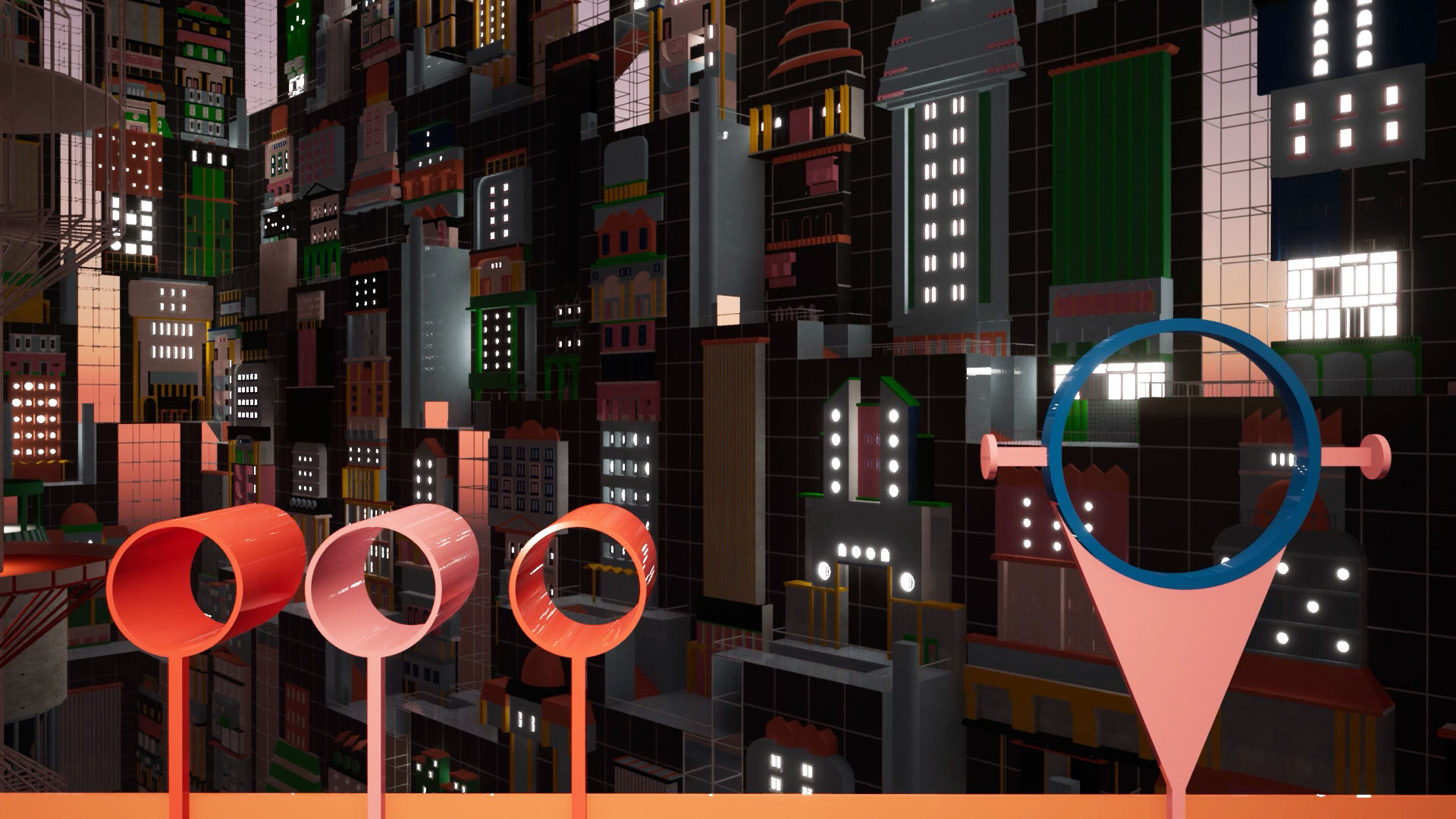

The public opinion polling that we have become accustomed to generates statements such as “I strongly agree that I trust people I meet for the first time”. However, this is not conversational language and these types of statements are only created with the intention of measuring data. The reading devices in these towers reveal the underlying individual opinions on trust through the aspirations and fears that people have throughout their lives. These filters depict a multiplicity of world views.
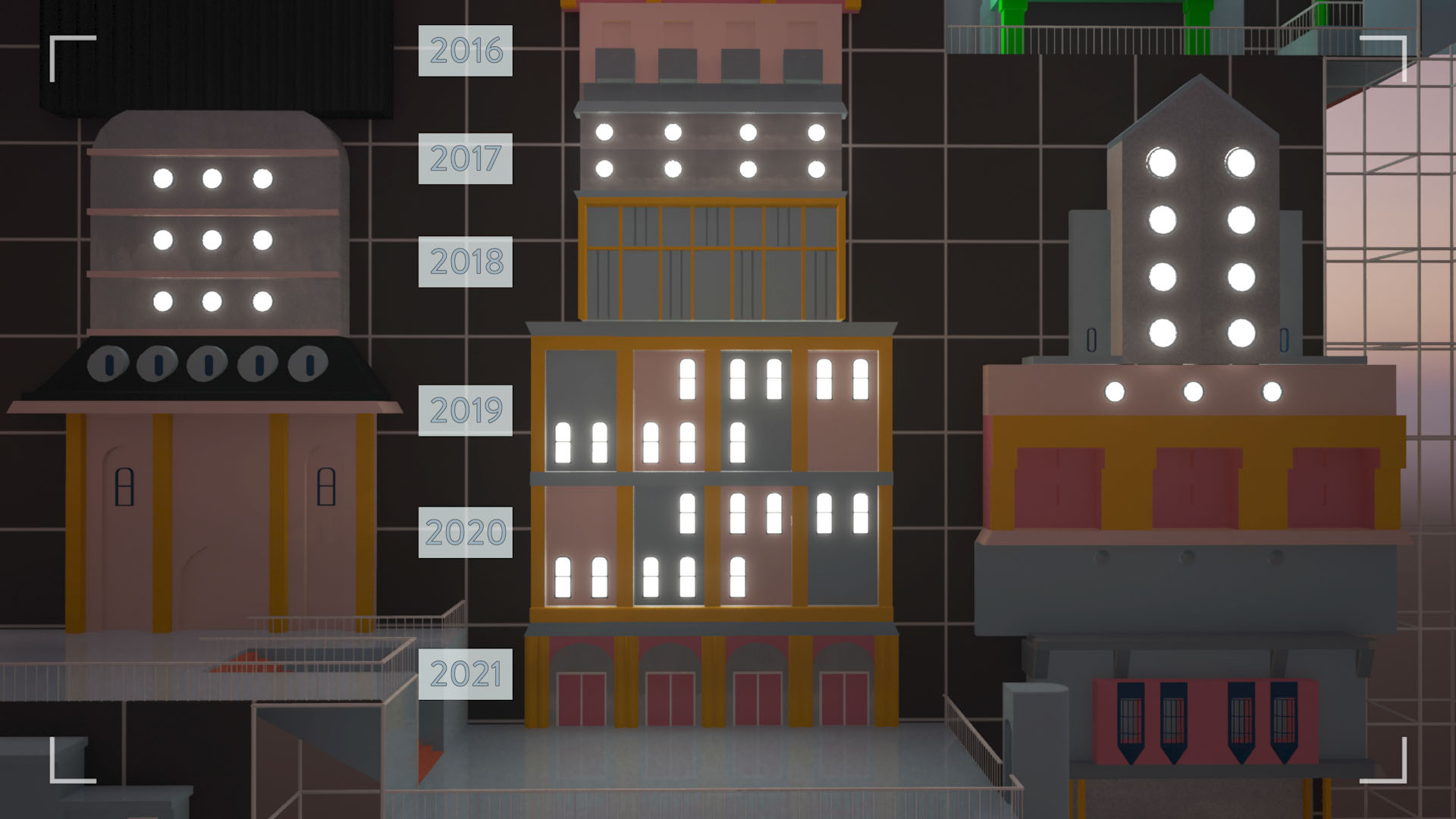
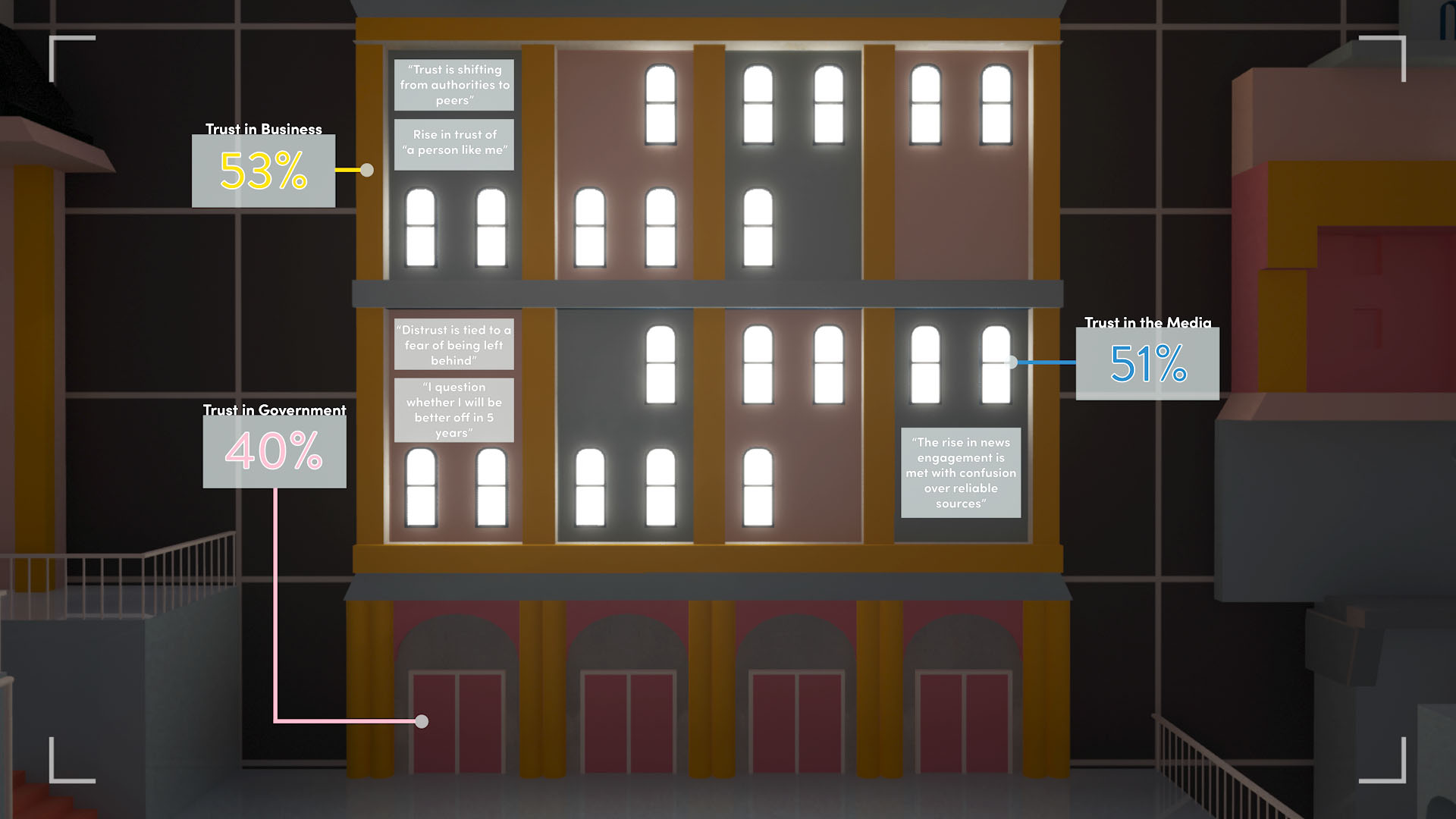
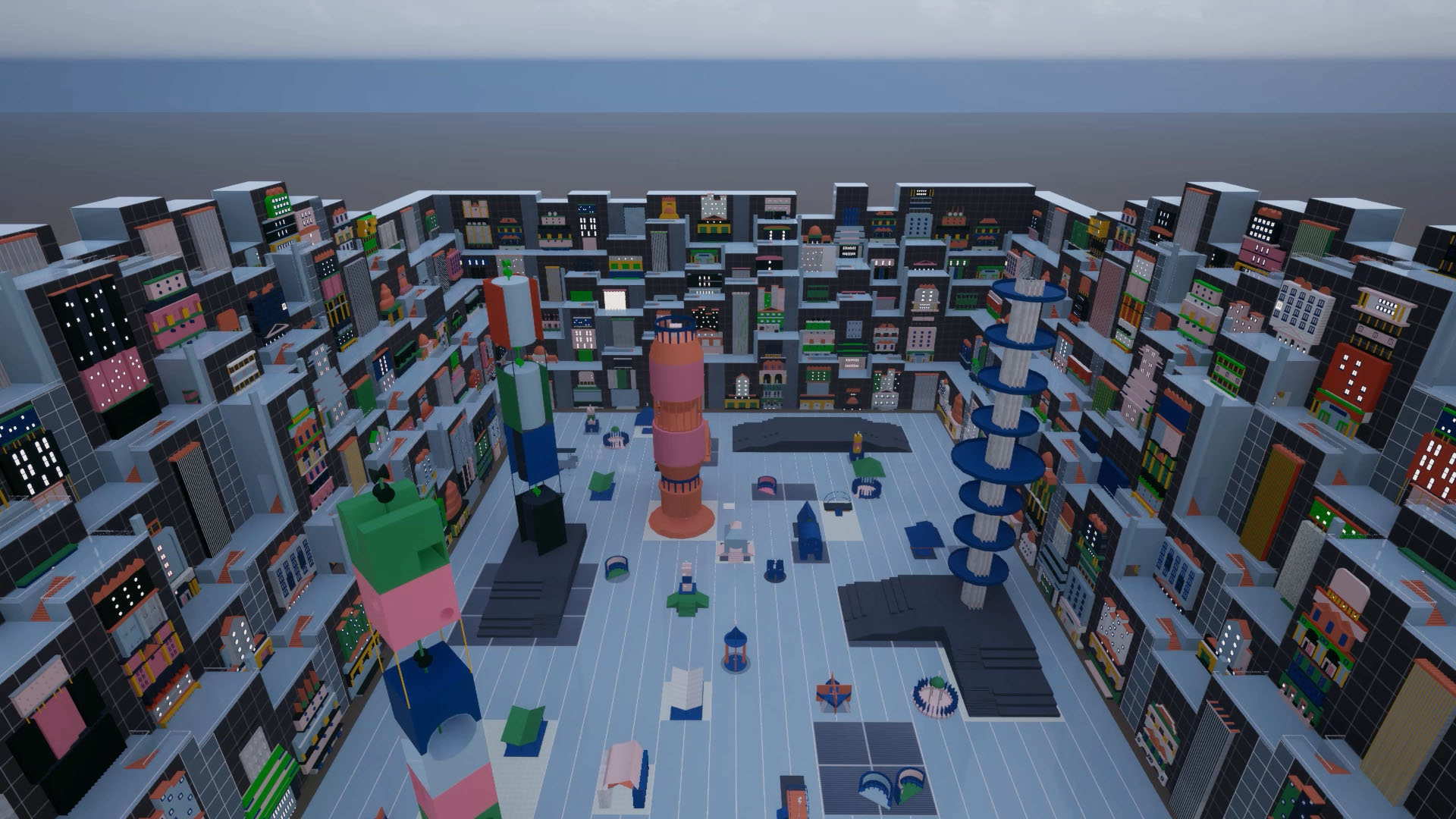

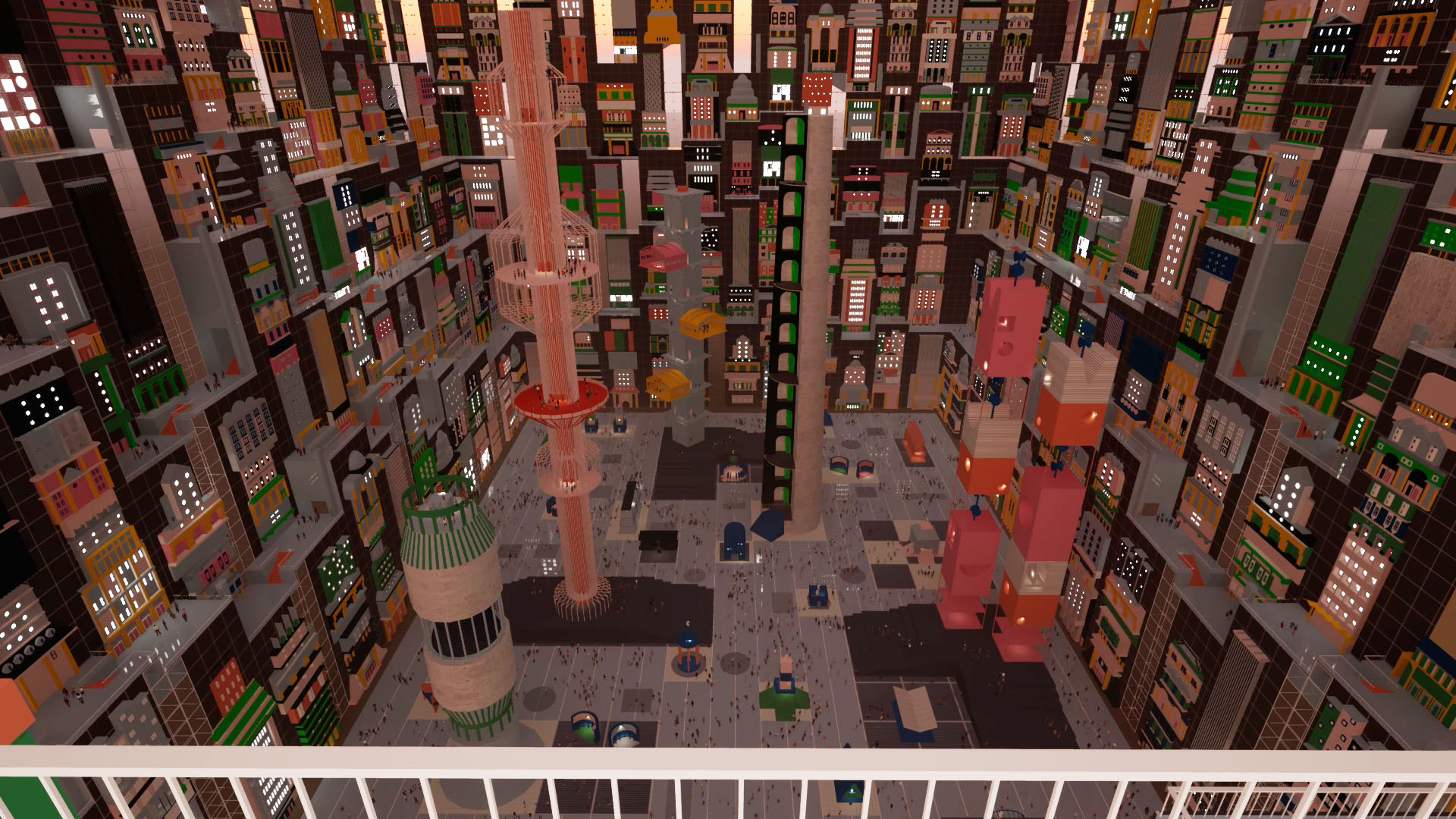
Trust holds society together. Without trust, societies struggle to innovate, evolve, and grow. The absence of trust causes friction and conflict. People who trust are more inclined to believe
information coming from leadership and are more willing to engage with how their institutions plan for the future. Simply stated, trust enables societies to flourish.


